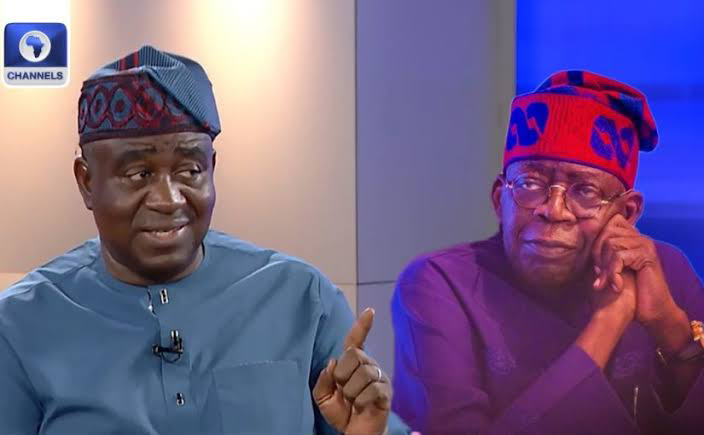As President Bola Tinubu's administration marks its second anniversary, former Benue State Governor and ex-Senator Gabriel Suswam has voiced strong criticism of the government's economic policies, asserting that they have exacerbated the suffering of Nigerians. In a recent interview on Channels Television's "Politics Today," Suswam contended that the current administration lacks the capacity to reverse the nation's economic decline, attributing the hardship to policy decisions such as the removal of fuel subsidies, currency devaluation, and increased electricity tariffs.
Suswam argued that these measures have led to a significant rise in the cost of living, making basic necessities unaffordable for many citizens. He stated, "How does an average man survive under those kinds of heavy bad economic policies?" highlighting the impact of increased transportation and production costs on food prices and overall inflation.
The former governor also criticized the previous administration under President Muhammadu Buhari, suggesting that its policies dismantled the economic foundations laid by earlier governments, leading to the current challenges. He emphasized that the Tinubu administration has continued on a similar trajectory, failing to implement effective solutions to alleviate the nation's economic woes
Suswam's remarks echo concerns from various quarters. The Catholic Bishops Conference of Nigeria recently described the country's current state as "the worst of times," citing increased poverty and insecurity . Similarly, the Christian Association of Nigeria (CAN) has urged the government to take immediate action to address the widespread hardship caused by recent economic reforms.
In response to the growing discontent, the Conference of Speakers from Nigeria's 36 State Houses of Assembly has called on President Tinubu to implement sustainable policies aimed at reducing the suffering of Nigerians.
As the nation approaches the 2027 general elections, the effectiveness of the current administration's economic strategies remains a critical issue for many Nigerians. Observers note that the government's ability to implement reforms that tangibly improve the lives of citizens will be pivotal in shaping public perception and electoral outcomes.












0 Comments